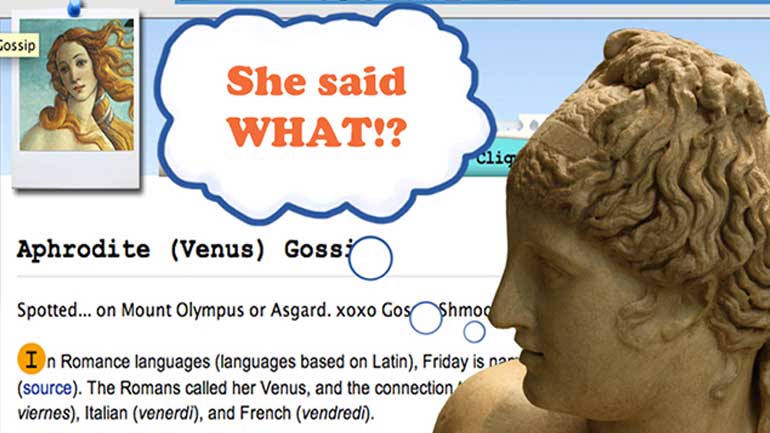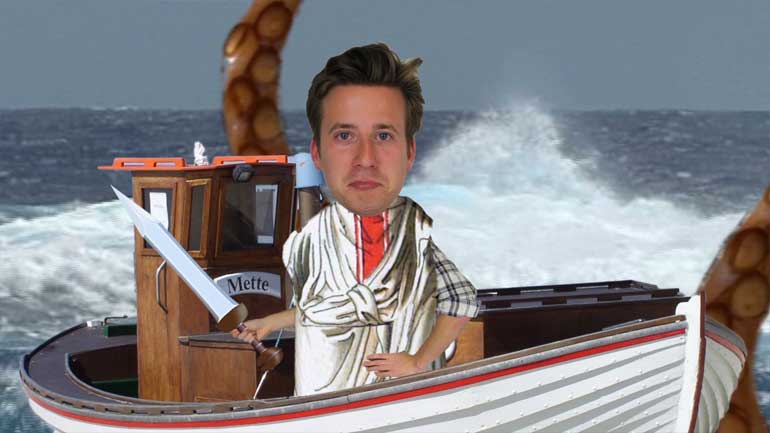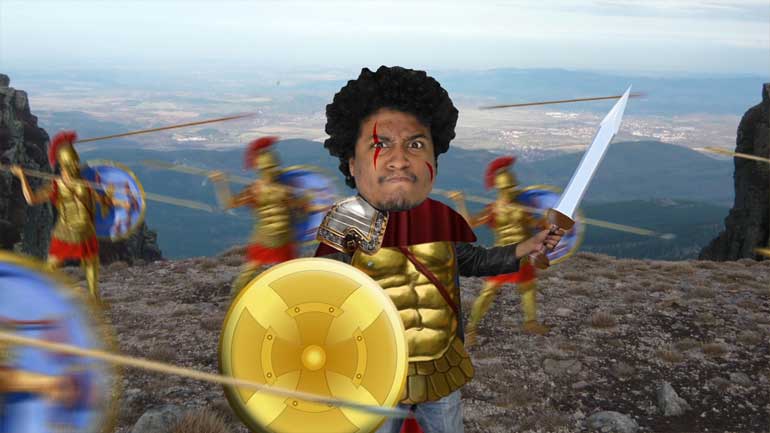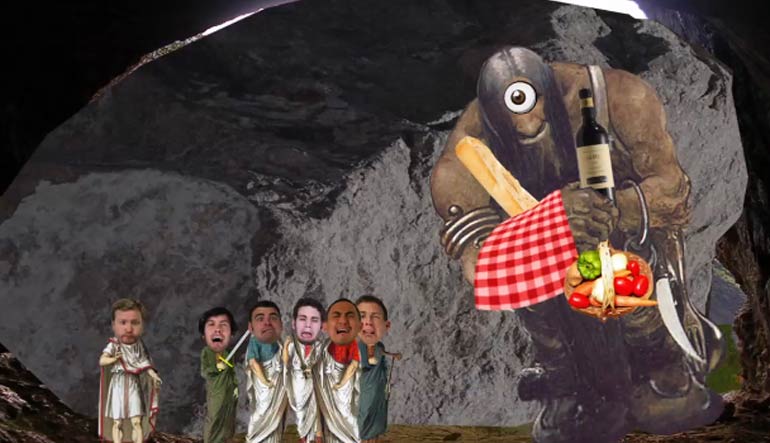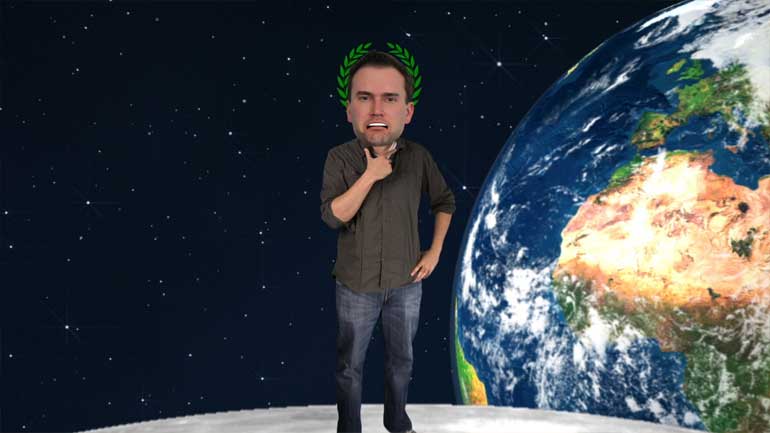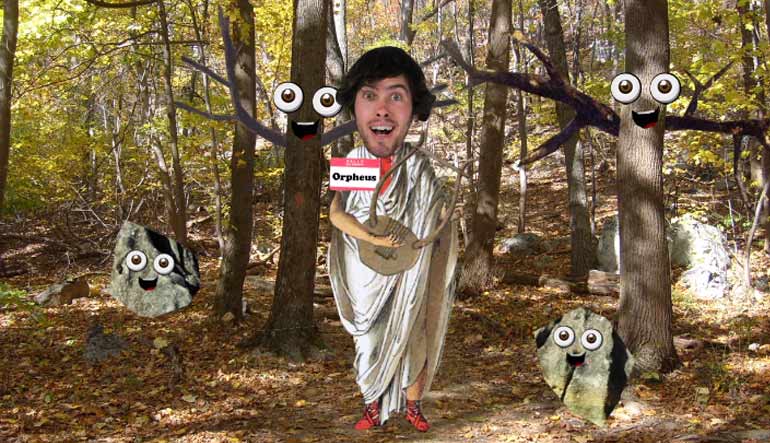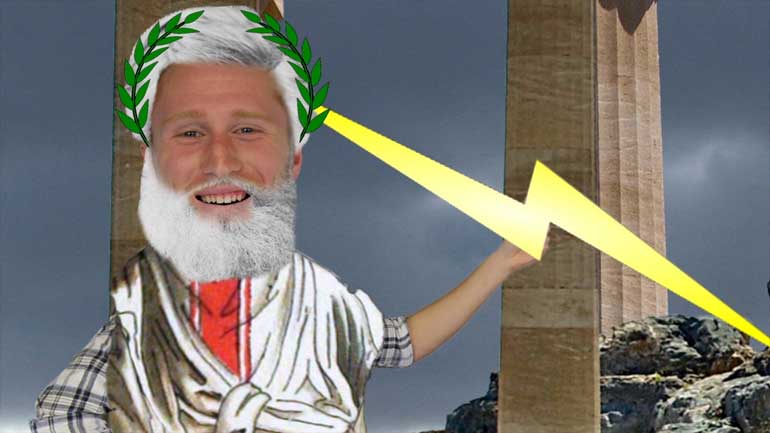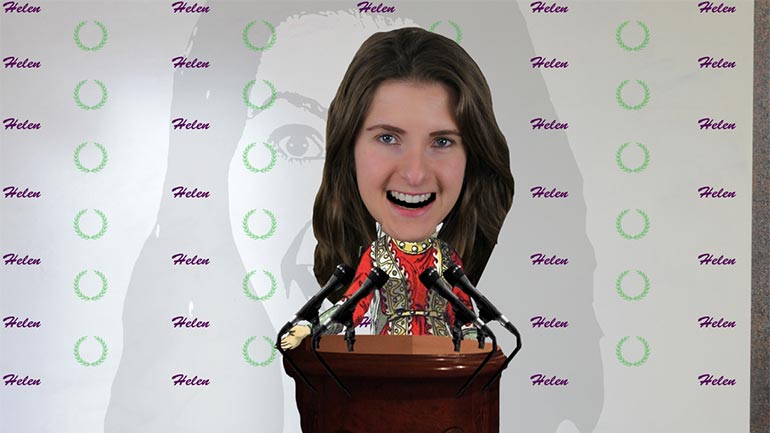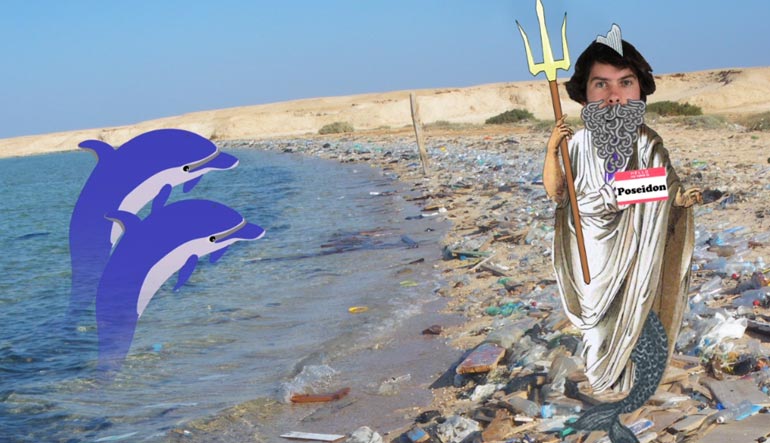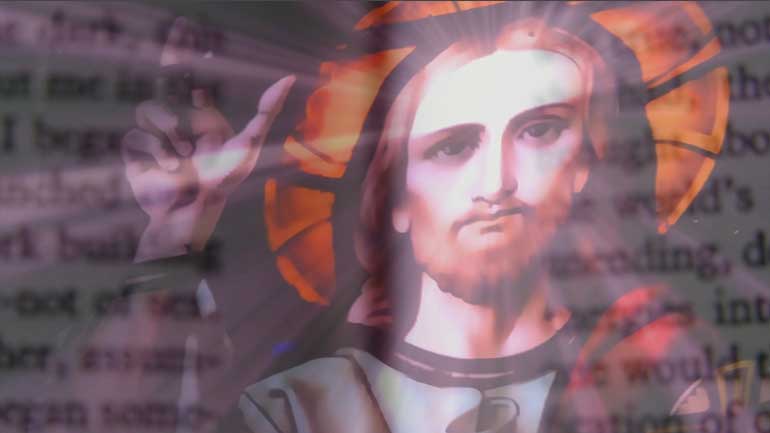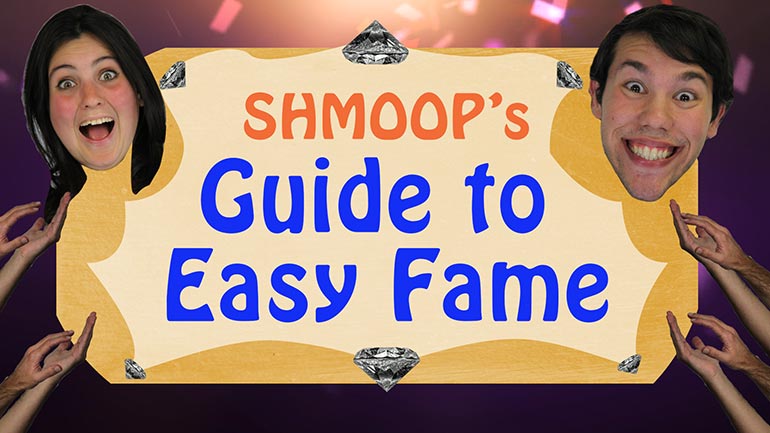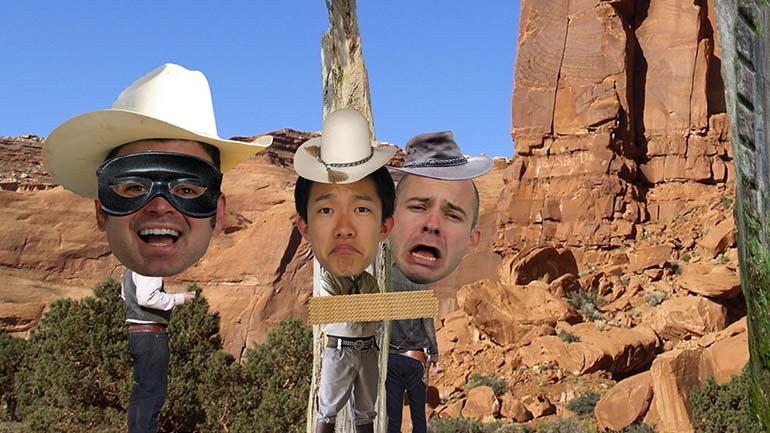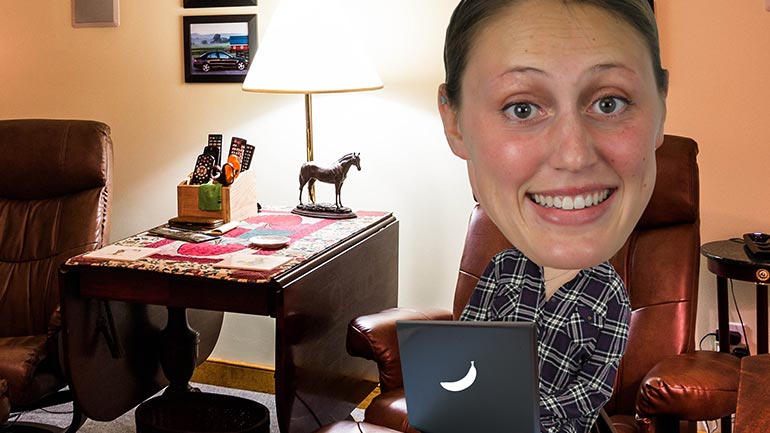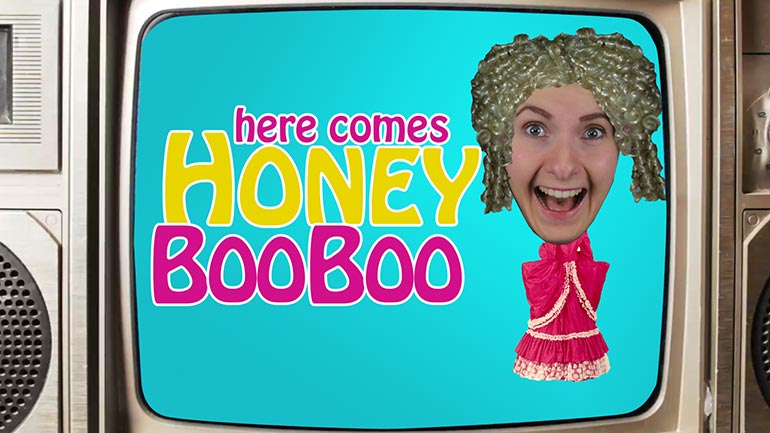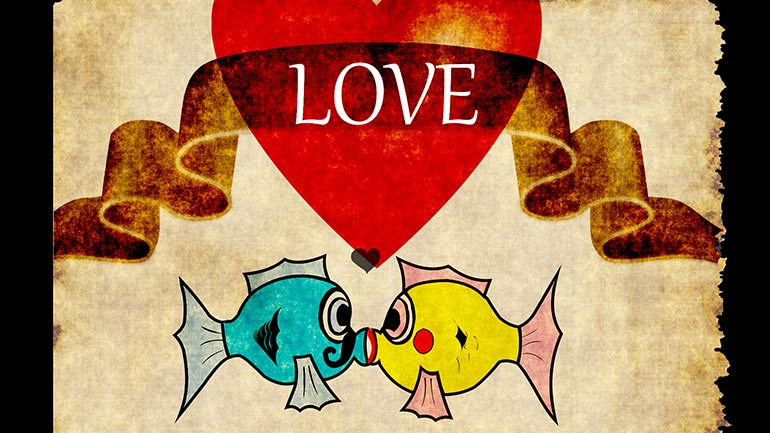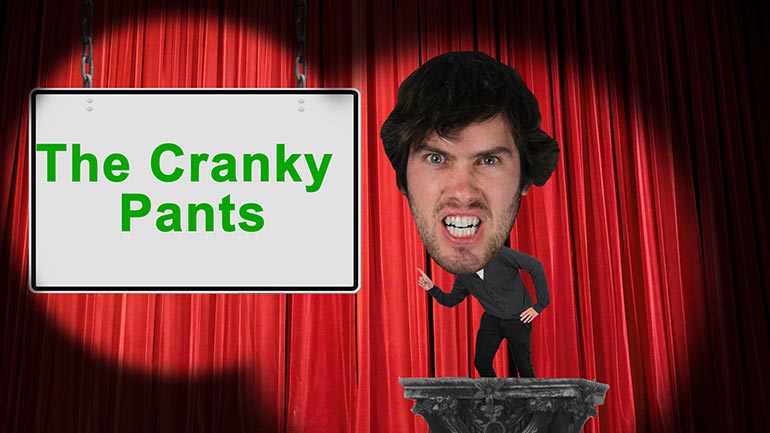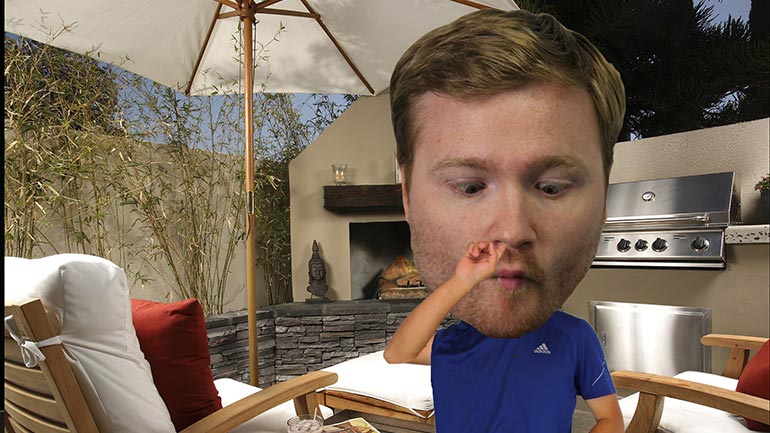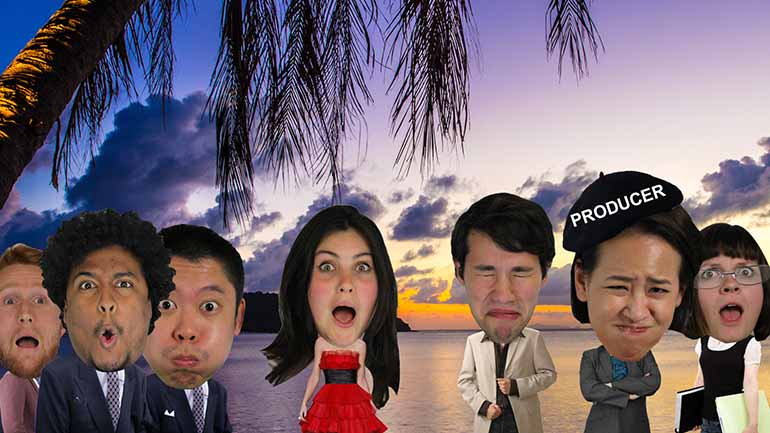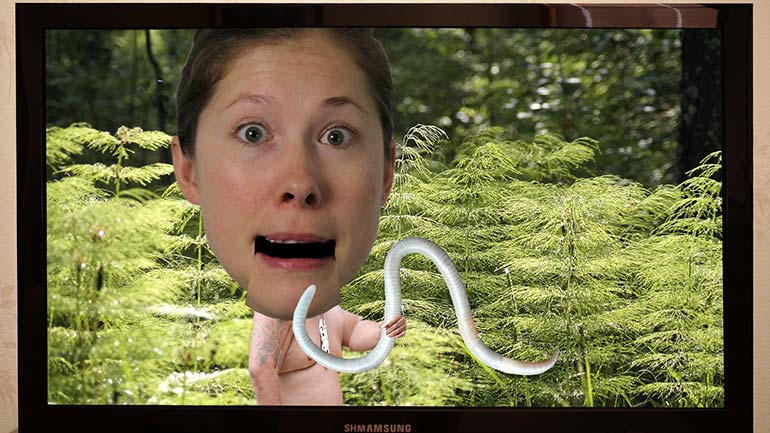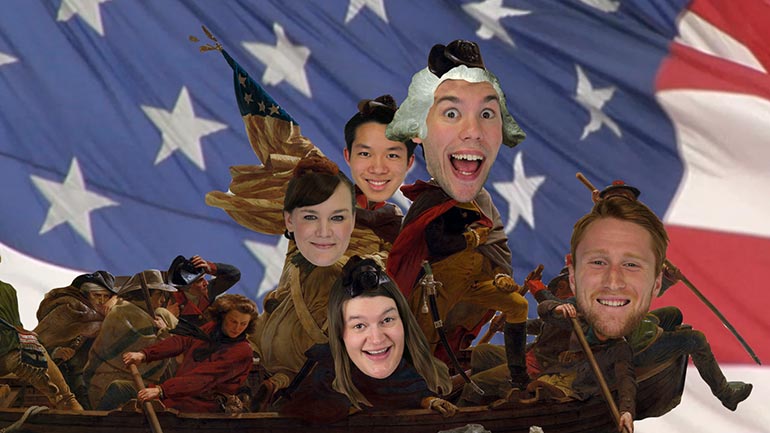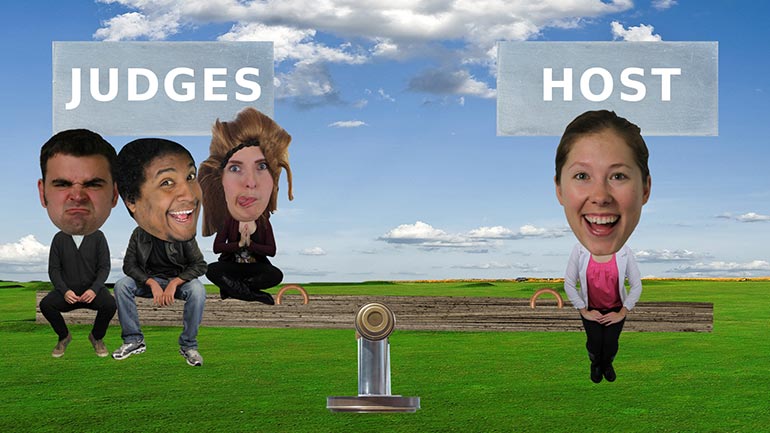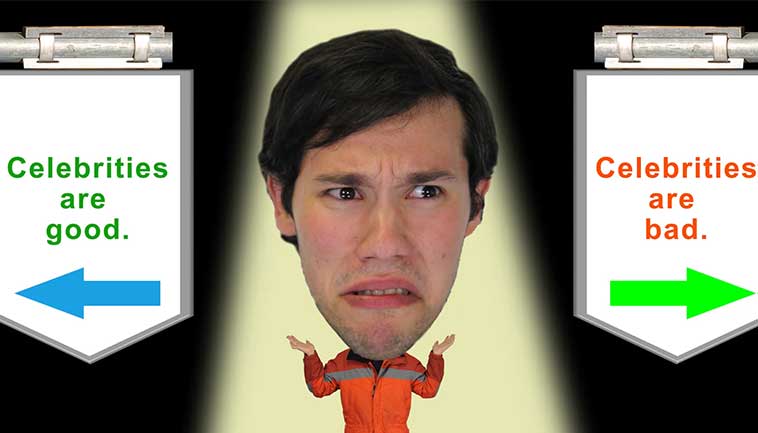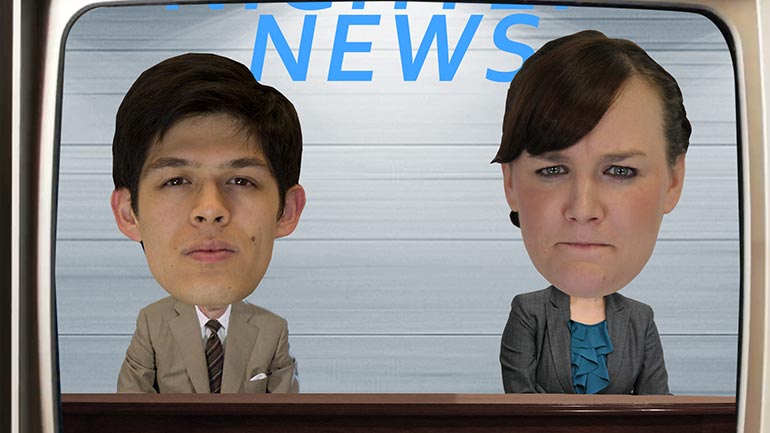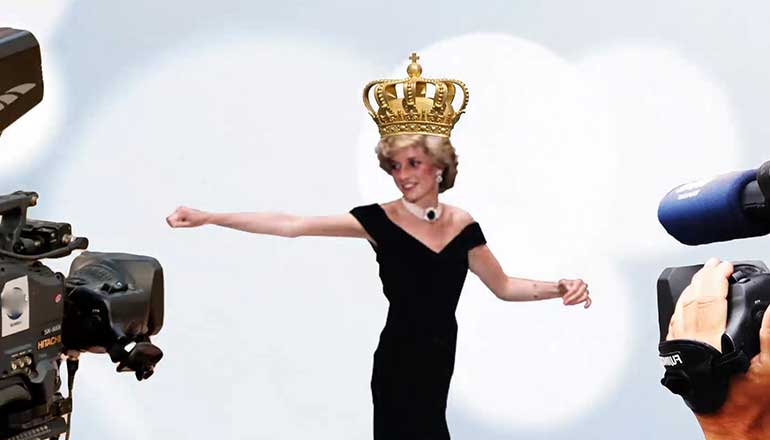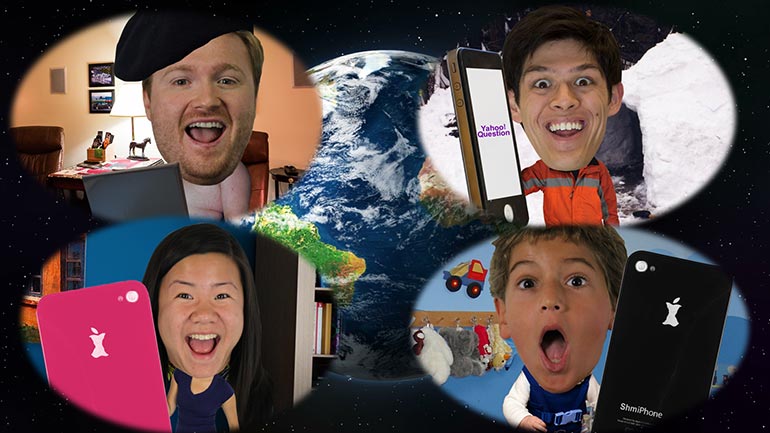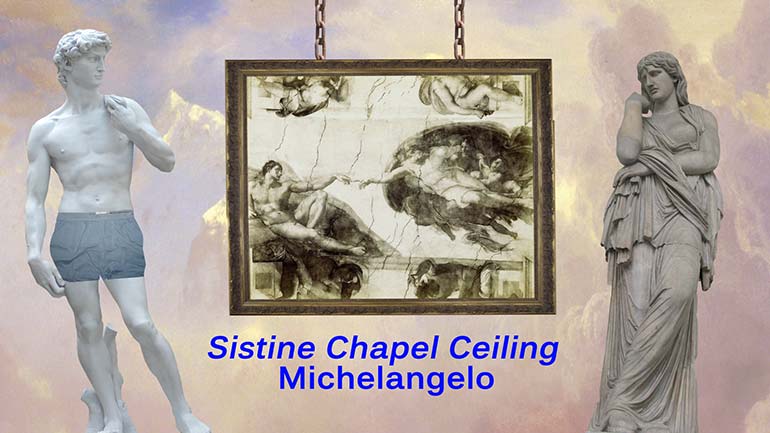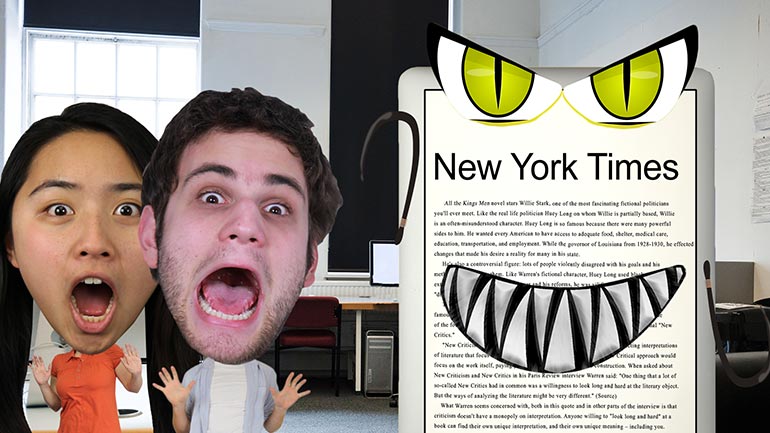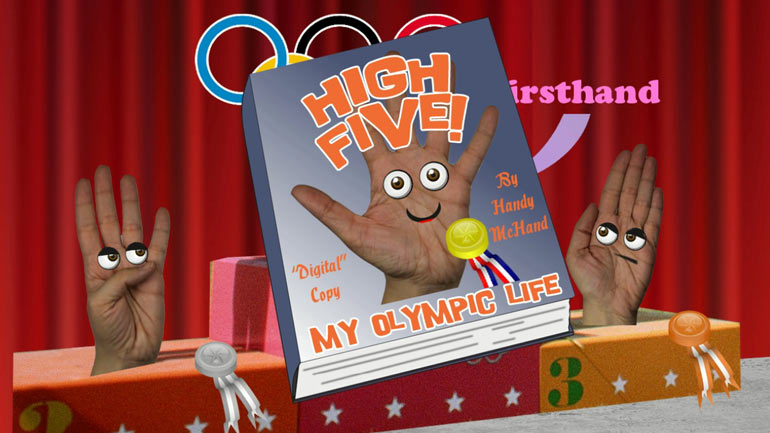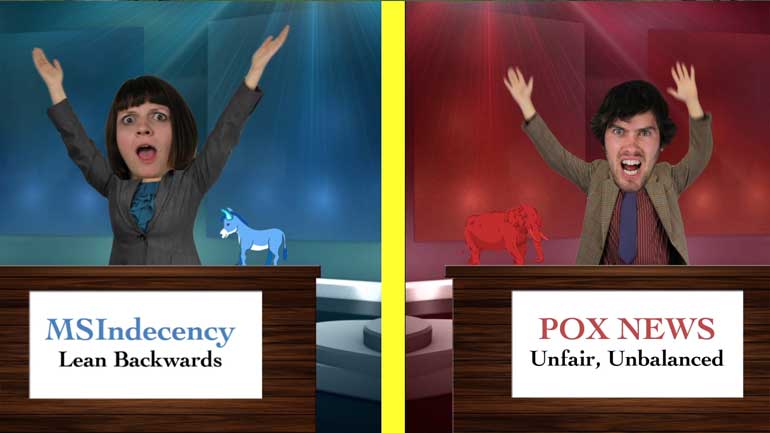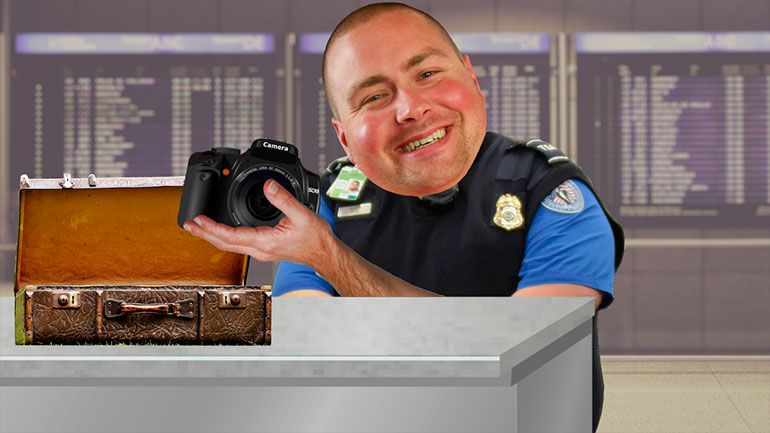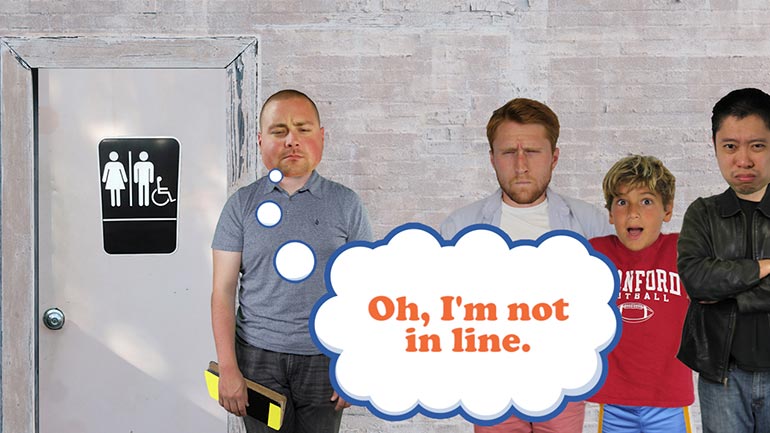ShmoopTube
Where Monty Python meets your 10th grade teacher.
Search Thousands of Shmoop Videos
Humanities Videos 55 videos
The gods and heroes battle it out with monsters in the best of mythology.
Today we aren't looking for the most virtuous person, or most likeable, but rather the most disturbing. Will it be Echo, the nymph who is doomed to...
Web Literacy: Credibility of Web Sources 3172 Views
Share It!
Transcript
- 00:01
We speak student!
- 00:06
Credibility of Online Sources
- 00:10
[ bird caws ]
- 00:11
What is a credible source?
- 00:13
So, first let's look at that word.
Full Transcript
- 00:15
"Credible" basically just means "believable."
- 00:17
It means "trustable."
- 00:19
- Like street cred? - Exactly.
- 00:20
There's probably some Latin derivative of that.
- 00:21
- There is, actually. - Wow.
- 00:23
- I think. I know there is an Italian derivative. - Well, "credo" would be...
- 00:26
Right, exactly.
- 00:28
So, in Italian, and I'm assuming Latin,
- 00:30
the verb means "to believe."
- 00:32
Credibility means that you can trust or believe that source.
- 00:35
That's basically it.
- 00:37
If you go to Joe Shmoe's blog
- 00:39
and you read about something
- 00:41
versus going to a .gov site
- 00:44
and reading about something.
- 00:45
.Gov is more credible.
- 00:47
That's kind of what it comes down to.
- 00:49
But there are a few ways that you can determine credibility.
- 00:52
And we talked a little bit about this with
- 00:54
what sources are cited.
- 00:56
But there's four main categories.
- 00:58
Let's see if I can get them.
- 00:59
Authority,
- 01:01
currency,
- 01:03
objectivity, and support.
- 01:05
So let's start with authority.
- 01:07
This is the big one.
- 01:08
Basically, who wrote it?
- 01:10
Why did they write it?
- 01:11
and should we believe them?
- 01:13
are the questions we want to ask.
- 01:15
Who's the author?
- 01:16
Is the author someone who has
- 01:19
the right background information to be giving us this information?
- 01:22
Where are the author's credentials?
- 01:24
Does it just say,
- 01:25
"Dave Siminoff"?
- 01:26
Or does it say "Dave Siminoff, founder of Shmoop"?
- 01:29
How do we know?
- 01:29
And if you don't know, go ahead and look the person up.
- 01:31
See who they are.
- 01:33
You wanna know where is this article being published?
- 01:38
Or where is -- Whether it's an article or whatever it is online,
- 01:40
where it's being published.
- 01:41
Is it in a news source that you know to be credible?
- 01:44
Is it in a tabloid which is not as credible?
- 01:47
Is it on a blog? Is it on Wikipedia? Et cetera.
- 01:51
So where the author is publishing it is important.
- 01:54
And you can go down the list.
- 01:55
But the main question here is
- 01:57
"Is the person writing it and the people publishing it
- 02:00
together are they people you can trust in?"
- 02:04
And you might need to do some checking to find that out.
- 02:08
Fair enough. And it's called LinkedIn.
- 02:10
It's really good for checking these things.
- 02:11
So the second thing is currency or, "Is the information current?"
- 02:16
Number one thing, always look for a date.
- 02:18
Depending on what you're reading about,
- 02:20
it might not be as important.
- 02:21
When you're talking about celebrities and fame,
- 02:23
you definitely want current stuff.
- 02:24
So you might be reading an article and be like,
- 02:26
"Oh, man! There was a study that showed that
- 02:28
zebras can talk?
- 02:30
That's crazy!"
- 02:31
And then it turns out that was in 2009
- 02:34
and they did another study in 2014
- 02:36
- and realized zebras can't talk. - Or it would've been 2009 BC
- 02:39
- and Noah was having the conversation. - [ laughs ] Exactly, exactly.
- 02:42
So, yeah, you have to make sure that the information is current.
- 02:45
That's really important when it comes to stuff like science
- 02:47
which changes all the time.
- 02:48
The third thing is objectivity.
- 02:50
This is what we talked about before.
- 02:51
Is it an objective source?
- 02:52
How do we find objectivity?
- 02:54
Because we're in a world today
- 02:55
where there are very few truly neutral sources.
- 02:58
The evening news and, I guess with early cable news,
- 03:01
was unapologetically brutally honest.
- 03:04
And it showed pictures that were graphic
- 03:06
that you wouldn't see in a normal prime time setting.
- 03:09
And it was a journalist's credo
- 03:11
to be credible, to be honest.
- 03:14
Even if it went against their own beliefs
- 03:15
and their own political bias,
- 03:17
they strove to tell the truth.
- 03:22
Today's world could not be more different.
- 03:25
Everyone -- It's like they're marketing for a political side
- 03:28
in one venue or another.
- 03:30
It's like trying to view
- 03:31
the world's history through a big, thick thing of gauze.
- 03:34
Because nothing is clear anymore.
- 03:36
There's very few honest lights.
- 03:38
As you said, that's kind of how the world is.
- 03:41
It's very hard to find an objective source.
- 03:43
Even scientific, academic papers
- 03:46
have some sort of bias from the author.
- 03:48
There always is.
- 03:49
The baggage an author or a publisher brings with them to a text
- 03:54
is always gonna skew the language
- 03:57
and how it's written one way or another.
- 03:58
So all we can do is be aware of that
- 04:00
and be ready for it.
- 04:01
It's totally fine to cite something
- 04:03
from a right-leaning or left-leaning source,
- 04:05
as long as you acknowledge
- 04:07
that it is right-leaning or left-leaning
- 04:09
and therefore might be biased.
- 04:11
We can't control how biased a specific journalist is
- 04:16
or author of a text is.
- 04:17
All we can do is be prepared for it
- 04:20
and understand that and really look for it.
- 04:22
So you're looking for maybe the most objective possible.
- 04:25
If you have a choice between
- 04:26
a newspaper article that's written in Fox news
- 04:31
or one that's written in MSNBC
- 04:33
and one that's written in something that people might say
- 04:35
is a little more neutral,
- 04:36
then you would wanna go with the more neutral one
- 04:38
if you had the choice.
- 04:39
If you didn't, and those were your two options,
- 04:41
great, use them. But say,
- 04:42
"Hey, I acknowledge this.
- 04:44
While MSNBC is left-leaning,
- 04:47
so we have to take what they say with a grain of salt,
- 04:50
they say that blah blah blah..."
- 04:52
And then the same with Fox news.
- 04:53
So we just have to be aware of it.
- 04:55
Got it. Makes sense.
- 04:56
And then the last category is support.
- 04:58
And this is when we're talking about citing sources.
- 05:00
Who is the author or the publisher citing?
- 05:04
When you come to Shmoop,
- 05:05
we don't cite Wikipedia as a source.
- 05:08
So, I love Wikipedia, I'm just gonna say that.
- 05:10
If I need to know, like you said,
- 05:12
just some basic information about something,
- 05:13
absolutely start there.
- 05:15
But that's what I always say, "Start there."
- 05:17
If you have no idea
- 05:19
what a topic is about --
- 05:21
If you were to say to me right now,
- 05:23
"I need you to know what this tiny particle of an atom
- 05:28
of a nucleus something is."
- 05:30
I have no idea what you're talking about, clearly.
- 05:32
[ laughs ] As you can tell by what I just said.
- 05:34
So finding a scientific article about it isn't gonna help me.
- 05:39
What I'm gonna do is I'm gonna go to Wikipedia
- 05:40
and I'm gonna be like, "Oh, this is what he's talking about."
- 05:42
Then I'm gonna go to the scientific article.
- 05:43
So just get that out there,
- 05:45
Wikipedia is a fine place to get an overview
- 05:48
of a subject.
- 05:49
You just can't necessarily trust everything you read
- 05:51
because it's written by people like you who know nothing.
- 05:54
Wikipedia does have experts writing,
- 05:57
but it also has people with huge biases writing.
- 06:01
And while it's moderated,
- 06:03
not everything is caught.
- 06:04
And you go to pages and it'll say like,
- 06:06
"This article is a stub." or "This article doesn't cite its sources."
- 06:09
And you see that a lot on Wikipedia.
- 06:11
So you just have to be really careful.
- 06:12
The one thing you can do if you are using Wikipedia is
- 06:15
anything that's not cited, don't trust it.
- 06:18
And if it's cited, there's that little blue number next to it.
- 06:21
Click it. It drops you down to the bottom of the page.
- 06:23
And it shows you what that source was.
- 06:26
Go to the original source.
- 06:27
If so-and-so said --
- 06:29
This is the page on zebras and it says,
- 06:31
"Zebras can talk."
- 06:33
and there's a little source,
- 06:34
click down to the link,
- 06:35
and if you click on that and it is a link to Nature
- 06:38
or Science or some periodical that's valued,
- 06:41
then you go, "Hey! Zebras can talk! Okay."
- 06:43
If you read that and it actually says that.
- 06:45
Yeah, and more likely than not, it's a link
- 06:47
- to NFL Referees. - Exactly.
- 06:49
[ laughs ] Exactly.
- 06:51
So you always have to check the source.
- 06:54
And that trickles down everything you're reading.
- 06:57
Whenever you're reading something, check the source,
- 06:58
check that person's source, check that person's source.
- 07:01
[ pen writing ]
- 07:03
What is a primary source?
- 07:06
What is a secondary source?
- 07:08
How can sources vary in credibility?
- 07:14
And that's "vary" with an "A."
Related Videos
What's the difference between a real estate agent and a real estate broker? Is the latter just, uh... out of cash? Quite the opposite, in fact. Jum...
So... what's a TSA worker, and what do they do? Oh, we thought maybe you knew. Okay, okay... so TSA (or Transportation Security Administration) wor...
